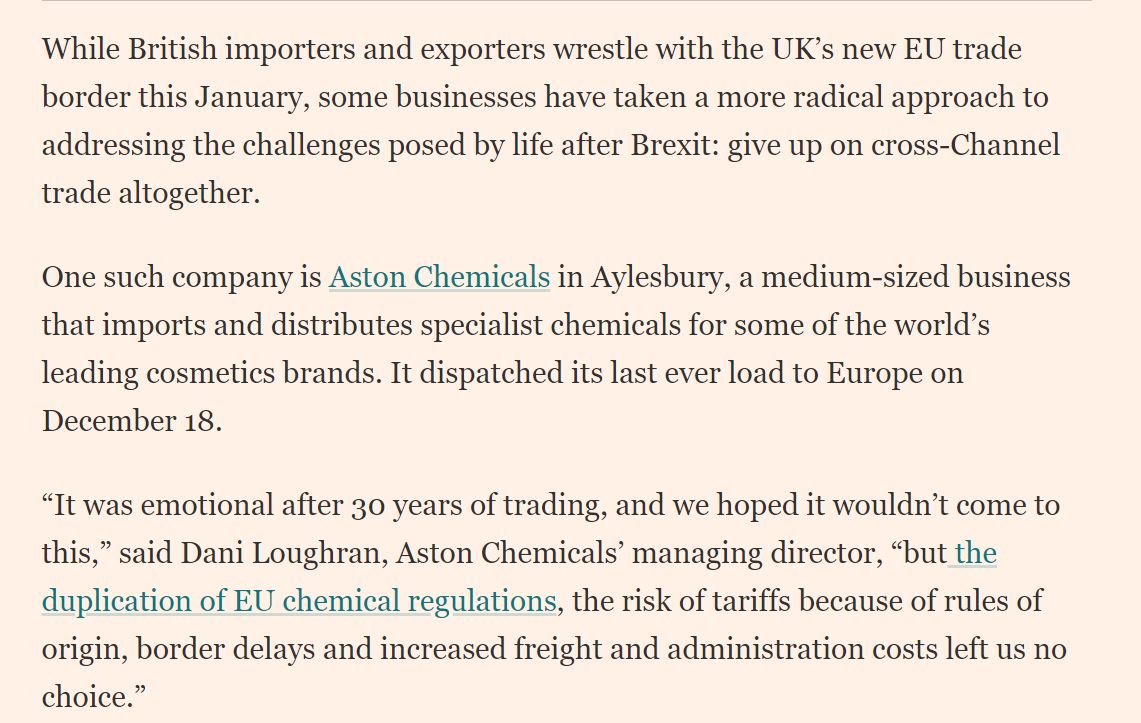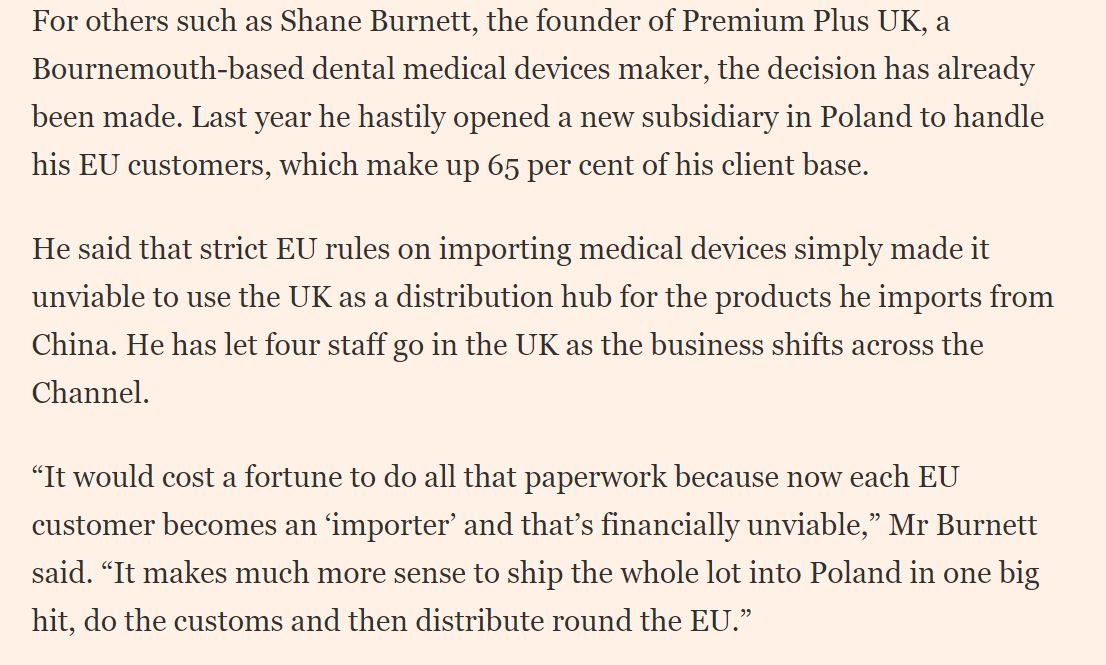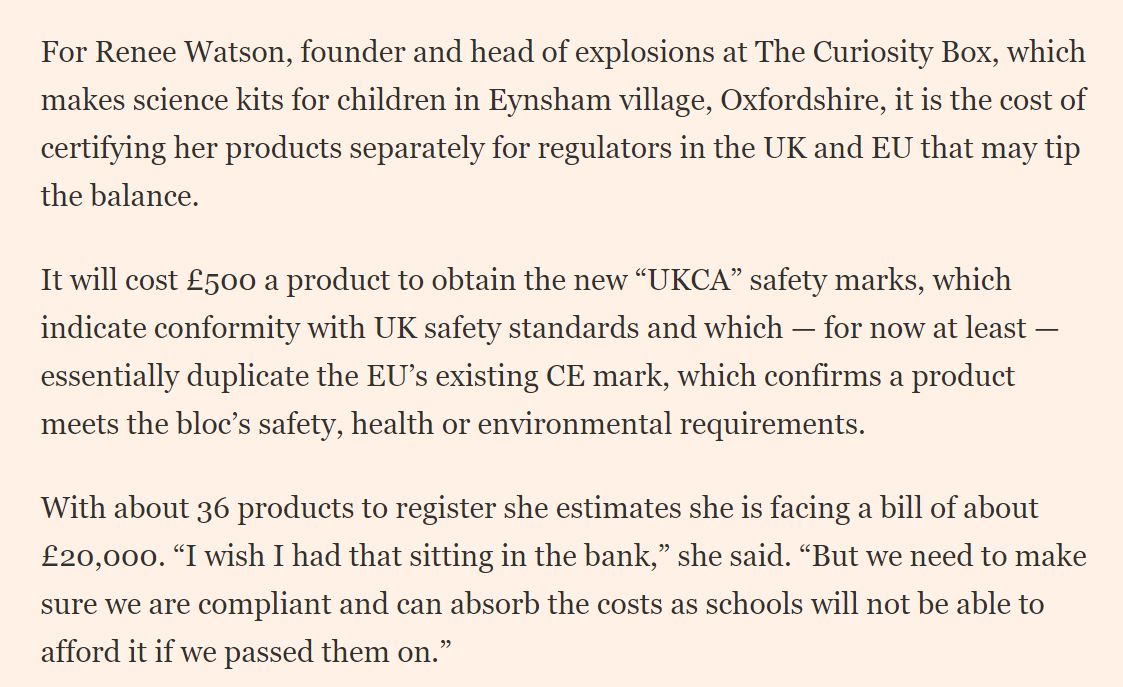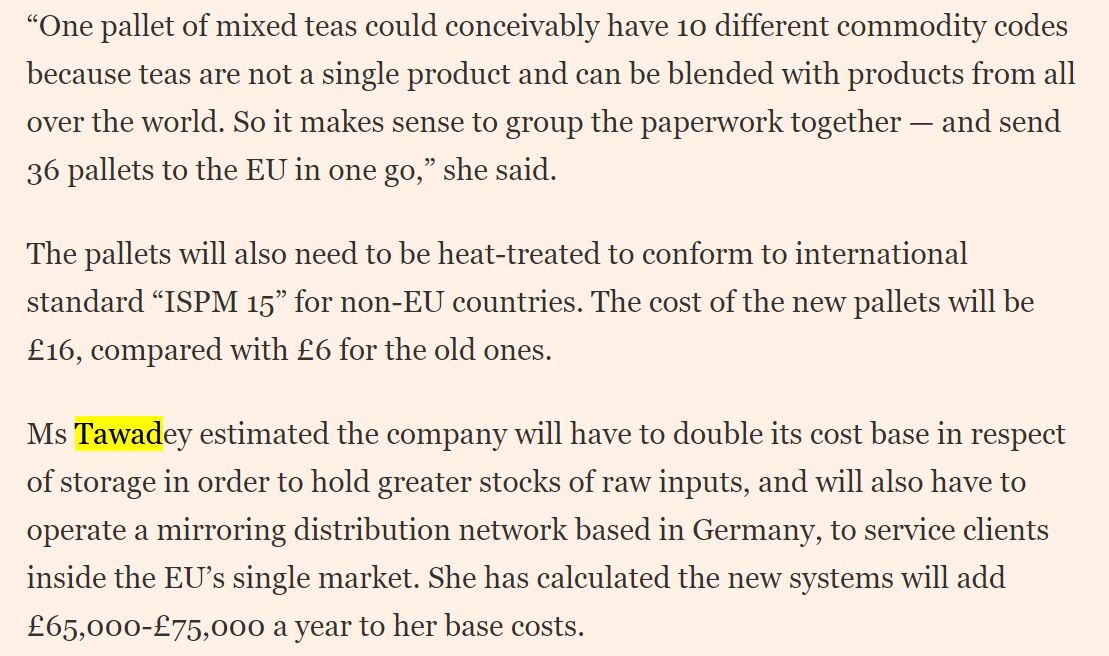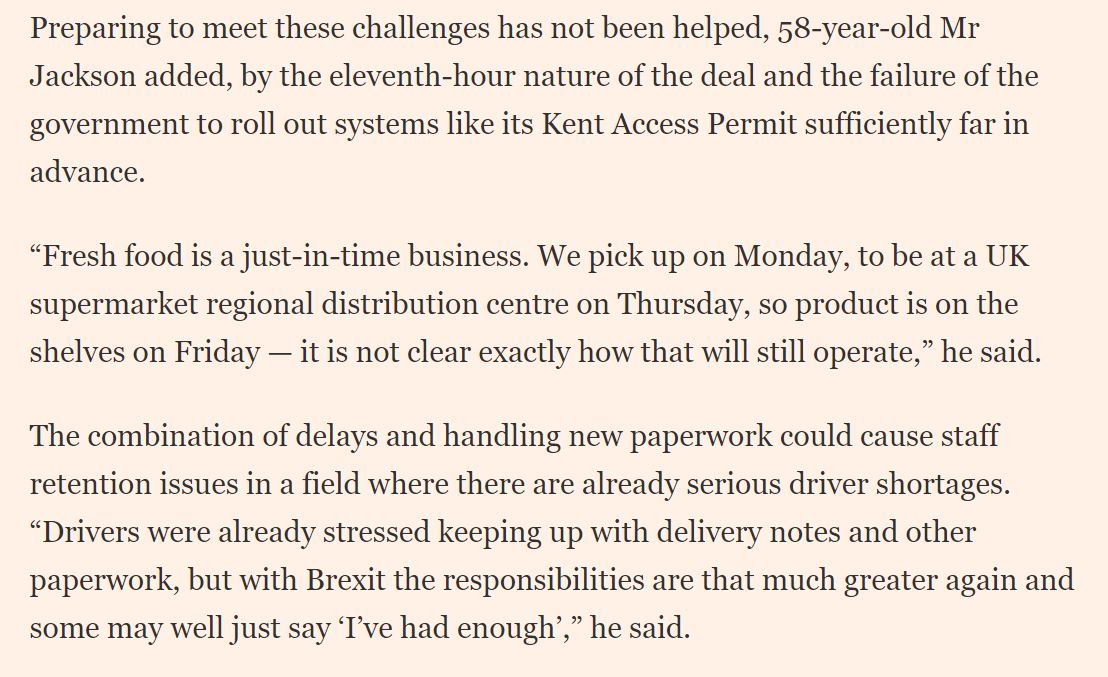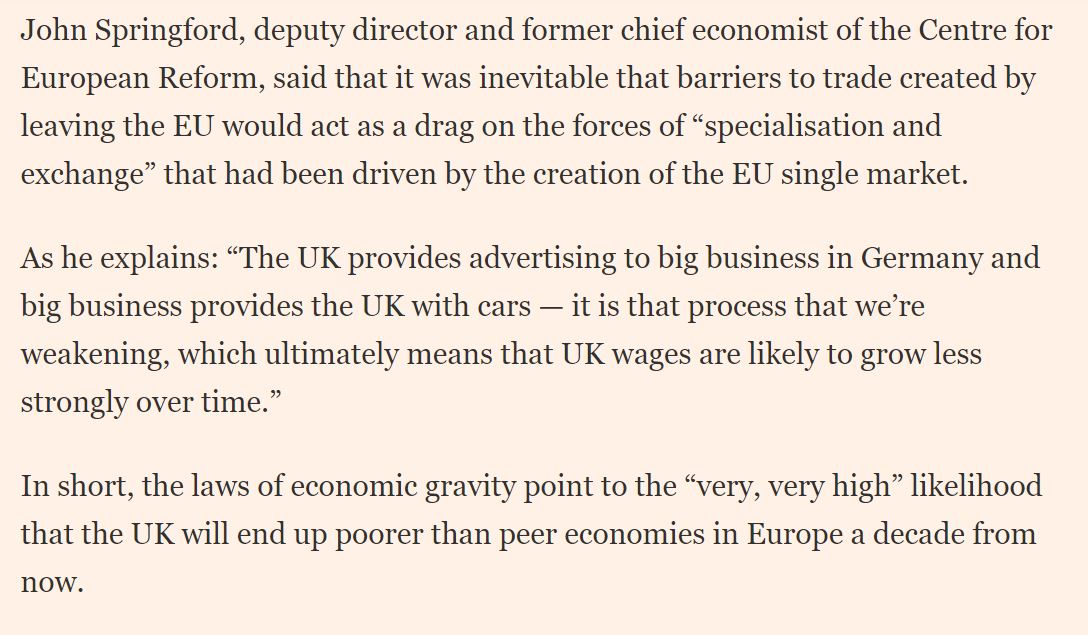As one EU official puts it: “You can’t expect the UK to remain the food import hub for the EU. It’s not sustainable, and makes no sense in the mid-to-longer run." And that applies to financial services, clothing, retail goods....a bureaucratic curtain has descended. /4
So what does that mean?
Well on the 'micro' front it means that businesses will start to split their supply lines between the EU and the UK...shrinking their UK footprint as a result. Take @AstonChemicals which supplies chems to cosmetics industry.... /5
Well on the 'micro' front it means that businesses will start to split their supply lines between the EU and the UK...shrinking their UK footprint as a result. Take @AstonChemicals which supplies chems to cosmetics industry.... /5
As @DanilLoughran tells me, they shipped their last UK-EU load on Dec 18....now all the EU product will go into Poland. As a result her UK warehousing staff headcount has shrunk by one third. /6
Why? Because importing all the chemicals into the UK for distribution to EU makes no sense - they need dual registration, risk tariffs because of rules of origin + all the border delays and paperwork. So she hubs from Poland. /7
https://www.ft.com/content/fbca627a-3d08-413f-b7e1-226a95b09d68
https://www.ft.com/content/fbca627a-3d08-413f-b7e1-226a95b09d68
It's a similar issue for Premium Plus UK, but as a dental devices importer, their issue is medical services directive that means EU importers must be responsible for goods them import (a legacy of bursting breast implants)...but makes it non-viable to hub from UK too. /8
For others like @reneewatson77 of Curiosity Box science kits, it's more wait and see if it makes sense to pay for dual certification - EU 'CE' mark and the UK's UKCA mark - which will cost her £20,000 her small business doesn't have. /9
Others like Kiran Tawadey of @hampsteadtea will get through by shift processes - more warehousing in German, but that means bigger loads and £65k-£75k to her base costs. How long she keeps basing of out the UK she isn't sure /10
https://www.ft.com/content/155dceea-f02c-4237-8dc2-c9e8c66e2daa
https://www.ft.com/content/155dceea-f02c-4237-8dc2-c9e8c66e2daa
All this will make life very interesting (to put it mildly) for those at the sharp end like Paul Jackson's @ChilternDist which has invested £1m in recent years in temperature-controlled distribution...and now waits to see how the border shakes down in practice. /11
Which is to say that #Brexit impact is not really about 'delays at the border'...it's the permanent, structural disadvantage of UK businesses vis-a-vis EU counterparts. i.e Those 'non-tariff barriers' that @BorisJohnson said did not exist (in a universe of alternative facts)/12
And the idea that UK business can 'just do more exporting to the rest of the world' overlooks the basic fact that they could do that as an EU member - but didn't, for a variety of existing reason. viz someone else doing it cheaper usually. /13
Brexiters love to defy economic gravity (particularly when it comes to services) but the economic reality is that competing with advanced economies on your door step is what keeps you productive - it provides economic muscle tone, because you have to compete /14
As @JohnSpringford explains to me beautifully, it is about specialisation and exchange: “The UK provides advertising to big business in Germany and big business provides the UK with cars" and it that process that we’re weakening by #Brexit /15
The net result is that UK workers shift into lower paid, less productive jobs over time and the UK will end up poorer relative to its EU peer-economies. That may even happen without anyone noticing - we don't live the counterfactual. /16
It may even be that the politicians who rode to power on the back of a bus emblazoned with alternative facts will continue to prosper politically, but you can't escape that they have signed essentially a reverse-cooperation agreement with the EU. Truly unique thing to do. 17/ENDS

 Read on Twitter
Read on Twitter